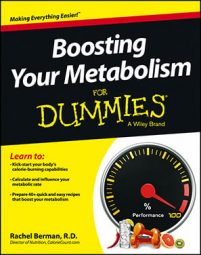Eating a meal or snack every 3 to 4 hours is something that is integral to keeping your metabolism moving all day long. If you’re someone who has one big meal at the end of the day, be aware that spreading those calories out more throughout the day can help your metabolism, improve your energy, and reduce your stress levels.
When you go many hours between meals, here’s what happens:
Your metabolism can slow down because it’s not being fueled regularly. Then it wises up to this, and after a few days, to compensate, might not burn calories off as effectively.
You’re more likely to be ravenous, lowering your inhibitions to make unhealthy choices at the next meal.
Your blood sugar levels drop, you’re cranky, and you have food cravings (like when you hit up your office vending machine at 4 p.m.).
You can feel more anxious and tired without a steady supply of nutrients to fuel your body and mind. You also have less energy to exercise harder or longer, which, in turn, affects your metabolic rate.
If you have difficulty remembering to eat, try setting an alert on your phone as a reminder. If you want to get even more specific, you can even include in the reminder what you’re going to eat at that time. Some smartphone apps such as FoodRemindr, Eat 'N Sleep, and Simple Meal Reminder, will let you set up notifications as well with less effort.
The amount that you eat at each of these meals and snacks is up to you, as long as it’s within your calorie allotment for the day. It’s really up to you to decide what’s going to be practical with your lifestyle and how hungry you feel.
Some people graze all day, eat about 200 calories every 2–3 hours and that works for them as far as energy supply and staying within calorie needs. But that can be impractical if you can’t think about food frequently when you’re at work or on-the-go.
Also grazing can have downfalls: Each time you eat you may not feel as satisfied as you do when you eat a meal or more substantial snack, which results in overeating later on or not having the energy you need to get through your day. It’ll be trial and error for you to see what works best for you personally.
Combinations of foods are the most important piece of this equation. If you’re just eating gummy bears all day, which are straight simple sugar, you’ll be having spikes in your blood glucose, dips in your energy, and you’ll never feel satisfied.
If you like gummy bears and want to have a serving, you need to pair it with a curber, a food that contains fiber, lean protein, or heart-healthy fats. This more nutritious food will help curb the impact of the sugar spike and your hunger.

